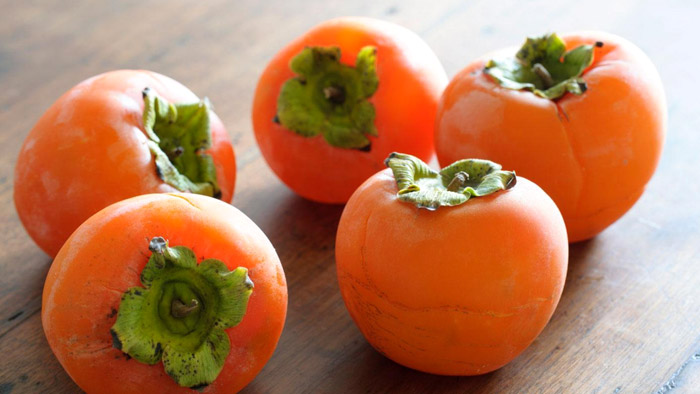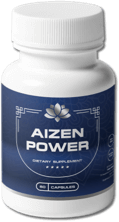Persimmon fruit was called a “divine fruit” by Ancient Greeks while in old China it was often referred to as “Food for Gods”. This organic super food will amaze you with its numerous health benefits.
This tomato resembling, orange, deliciously juicy exotic fruit is packed with nutrients that can, in winter times, cure our body from colds, fatigue, fever, and much more… so be our guest for a moment and meet His Fruit Majesty, the Persimmon!
Persimmon Facts
The tomato-like fruit called persimmon goes by various names: Japanese apple, Japanese persimmon, kaki fruit, “divine fruit” or “God’s pear“. Kaki fruit (persimmon kaki) belongs to the genus Diospyros of Ebenaceae family. To our surprise, botanical morphology classifies persimmon fruit as a type of a berry!
Persimmon Origins
Persimmon is mainly produced in Southeast Asia, although different varieties are grown in Southern Europe or Americas too. To be more specific, China, Korea, Japan, Brazil and Azerbaijan are the world’s top producers of this exotic fruit.
-- Advertisement --
Dominate The Male Enhancement Niche Today

Persimmon Super Health Benefits
It is certain that kaki fruit or persimmon is extremely healthy! Simply be amazed by many health benefits that you will gain from including persimmon fruit into your regular diet:
-
Persimmon & Hemorrhoids
Perhaps it is less known to the wider public that persimmon can be very effective against diarrhea and hemorrhoids.
-
Persimmon & Diuretic Properties
Substances such as potassium and calcium make persimmon a great diuretic.
-
Persimmon & Aging Prevention
Persimmon fruit allegedly prevents aging. It contains vitamins such as vitamin A, beta-carotene, lutein, lycopene and cryptoxanthin which act as antioxidants in human body. By reducing oxidative stress, vitamins in persimmon prevent signs of premature aging, such as wrinkles and age spots. Additionally, regular use of persimmon can contribute to prevention of blurred vision, fatigue, muscle weakness, and even Alzheimer’s disease!
-
Persimmon & Blood Pressure
Due to the abundance of potassium, persimmon can reduce blood pressure and thus improve blood circulation and cardiovascular system, preventing various heart diseases.
-
Persimmon & Laxative Properties
Dietary fibers naturally stimulate digestion and eliminate constipation problems. In general, persimmon gives digestive system an enormous boost, and therefore can protect us against colon cancer.
-
Persimmon & Anti-Hemorrhagic Properties
Substances such as betulinic acid can prevent hemorrhages and make this exotic fruit beneficial for our health.
-
Persimmon & Cancer Prevention
Anti-oxidant and anti–cancer acting vitamins A, C and K found in persimmons protect human body from the effects of oxidative stress, which can help strengthen the immune system. The consequences of oxidative stress and fighting free radicals are often associated with chronic diseases such as heart disease and various cancers.
-
Persimmon & Digestion
As many types of fruit, Japanese apple is rich in dietary fibers that are essential for proper digestive tract functioning and overall body detox.
- Persimmon & Eye Sight
It has been shown that certain substances in persimmon fruit are beneficial for the health of your eyes. Zeaxantine (a B-vitamin type) is an anti-oxidizing agent and is directly related to an improved health of our eyes.
- Persimmon & Hearth Disease
A recent survey showed that Japanese apples contain high levels of minerals and phenol compounds, which are of crucial importance in the fight against atherosclerosis and other heart problems.
-
Persimmon & Immune System
One persimmon fruit contains 12.6mg of vitamin C, which makes 21% of the preferred daily intake of this vitamin. Inclusion of fruits rich in vitamin C strengthens the immune system, protecting the body from infections and free radicals. Vitamin C stimulates the immune system and increases the production of white blood cells, which are the main line of defense against microbial, viral and fungal infections.
- Persimmon & Weight Loss
Japanese apples are a great source of dietary fiber because they contain 6 grams of fiber per fruit (24% of the preferred daily intake). Dietary fiber is the key to weight loss because it speeds up digestion and reduces appetite.
- Persimmon Fruit and Anti-Tumor Properties
In addition to the persimmon having antioxidant properties that reduce the risk of cancer, persimmon fruit can further decrease the risk of developing various types of tumors. Persimmons contain betulinic acid, which has proven to be a substance that prevents or reduces tumors. For persons who already have developed a certain type of a tumor, persimmons might (to some extent) assist in limiting the tumor size and so prevent metastases.
- Persimmon Fruit and Blood Circulation
In addition to lowering the blood pressure, persimmons also contain copper, an important substance for the creation of new red blood cells. An increased circulation of healthy red blood cells increases the cognitive functioning, improves metabolism and energy levels. Wound healing and cellular growth can be helped by persimmon regular use.
-
Persimmon Fruit and Oral Infections
While Asian traditional medicine uses persimmon for the prevention and treatment of various conditions such as hiccups, fever or even bed-wetting, the U.S. traditional Catawba people used the bark of persimmon tree to create a natural mouth rinse and subsequently treat oral infections (thrush).
Persimmon Taste
Persimmon taste can be astringent and non- astringent. The astringent type has much tannin and is rather unpalatable in case the fruit is not ripe. The unripe kaki fruit has a very dry and powdery texture, which is rather distasteful and undesirable. Fully ripe persimmons are soft, very sweet and tasty. The color of the exterior varies from deep yellow to orange.
Persimmon Nutritional Value
Persimmon contains many B-complex vitamins such as pyridoxine, folic acid and thiamine, all being essential parts of different enzymatic processes and metabolic functions in the body. This can increase our energy, improve the appearance of our muscles, improve our digestion and give a boost to our immune system. Persimmon is also a substantial source of vitamin C, A, E.
Persimmon Preparation & Serving Tips
Persimmons can be eaten fresh, dried or cooked. The dried variety can be eaten as a snack and in desserts. The structure of persimmon varies from firm to mushy. In some parts of Southeast Asia, persimmon blade is used for tea preparation. In general, fresh juices, smoothies or even delicious pies can be made from persimmons.
Dried persimmons (Hoshigaki in Japan) can be used in cookies, cakes, muffins, puddings, salads and as a topping for cereals. They are widely used to make a traditional Korean spicy dish, sujeonggwa, while a mature, fermented fruit is used to make persimmon vinegar called “gamsikcho”.
Persimmon Side Effects
Kaki fruit is beneficial for our health but some caution might be taken when eating unripe persimmons as these contain a lot of tannin and this will give a very dry and insensitive mouth during and after eating kaki fruit. Diabetes sufferers should eat persimmon in moderation, because too much sugar may increase blood glucose.
Persimmon Coconut Vanilla Energizing Juice Recipe:
Ingredients:·
- 1-2 ripe persimmons
- 200 ml coconut water
- 4-5 vanilla extract drops (or more, to your own taste)
Preparation:
Wash and cut in pieces 2 ripe persimmons; put them in the blender, then add coconut water and the vanilla extract. Simply blend away! You can enjoy this Persimmon Pure Perfection as a morning or an evening energizer!
Source: DietOfLife



